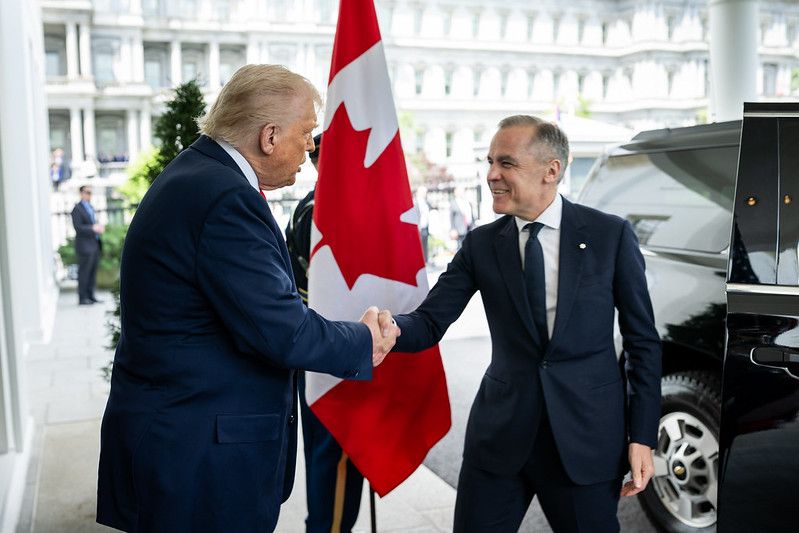Already a subscriber? Make sure to log into your account before viewing this content. You can access your account by hitting the “login” button on the top right corner. Still unable to see the content after signing in? Make sure your card on file is up-to-date.
The United States has imposed a 35% tariff on select Canadian goods after both countries failed to reach a new trade agreement.
Some shit you should know before you read: The United States and Canada share one of the world’s largest trading relationships, with bilateral trade totaling over $950 billion in goods and services in 2023. Canada is the largest export market for the US, purchasing almost 20% of all American exports, including vehicles, machinery, electrical equipment, and agricultural products. The US is also Canada’s top trading partner, accounting for approximately 75% of Canadian exports, which include crude oil, automobiles and parts, lumber, aluminum, and agricultural goods. Prior to this latest move, Canada faced a 25% tariff on specific exports such as steel and aluminum after Trump demanded a new trade deal.

What’s going on now: In an announcement, Trump confirmed the US would impose a 35% tariff on select Canadian goods, raising the rate from the 25% level implemented in March. The executive order, signed just before midnight on Thursday, cited Canada’s “failure to cooperate in curbing the ongoing flood of fentanyl and other illicit drugs” as the primary justification. “This is about protecting America from an extraordinary threat to our national security,” Trump said, referencing Canada’s alleged role in the cross-border drug trade. He also mentioned that Canada’s foreign policy stance (specifically its openness to recognizing a Palestinian state) had further complicated negotiations, saying, “I didn’t like what they said, but you know, that’s their opinion. Not a deal-breaker. But we haven’t spoken to Canada today.”
Canadian Prime Minister Mark Carney responded early Friday with a sharply worded statement expressing disappointment, though he left the door open for future negotiations. “While the Canadian government is disappointed by this action, we remain committed to [the Canada-US-Mexico Agreement], which is the world’s second-largest free trade agreement by trading volume,” Carney said. He defended Canada’s border security efforts, stating, “Canada accounts for only one percent of U.S. fentanyl imports and has been working intensively to further reduce these volumes.”
Carney also noted that while most Canadian exports remain tariff-free under USMCA, critical sectors like lumber, steel, aluminum, and automobiles would be hit hard. “For such sectors, the Canadian government will act to protect Canadian jobs, invest in our industrial competitiveness, buy Canadian, and diversify our export markets,” he said.
Conservative Party Leader Pierre Poilievre also condemned the new tariffs, calling them “unjustified” and urging the government to push for full tariff removal. “That means zero tariffs on our steel, aluminum, softwood, autos, energy, agriculture and everything else. That is the deal Canada had before and the prime minister should accept nothing short of that.”







